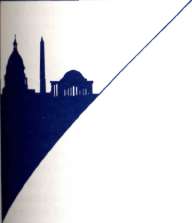 |
Home | Search | Browse | About IPO | Staff | Links |
 |
Home | Search | Browse | About IPO | Staff | Links |
|
By CHARLES J. ABBOTT 
REP. Barber Conable Jr. recalls, "There is an old Pennsylvania Dutch proverb: There's more trouble in a bottle of milk than in a bottle of whiskey." The battle over dairy legislation last fall shows the adage still has value. It also shows the challenge of writing agricultural legislation, which has a major influence on one of the largest and most basic industries in Illinois and the United States. Most of the government's farm programs expire in 1985, but congressional leaders say they will start work on the successor programs in the coming months. The dairy debate — whether to pay farmers not to produce milk — inspired a rare split among farm organizations, who usually do not try to influence legislation affecting other segments of agriculture. This time, spokesmen for hog and cattle farmers, worried about the chance of billion-dollar losses if too many dairy cows were slaughtered, joined in an unusual alliance with consumer groups to oppose what dairymen wanted. By the time it was over, Agriculture Secretary John Block was accused of flip-flopping, and congressmen from tobacco states sided with their dairy state colleagues. There also were some dark mutterings about the objectives of Budget Director David Stockman. It has been a couple of years, but many people on Capitol Hill remember "The Education of David Stockman," printed as both a book and an Atlantic Monthly article. At one point, the book recounts: "Victories over farm lobbies could be won, Stockman believed, if he kept the issues separate — attacking each commodity program in turn and undermining urban support by cutting the food and nutrition programs. 'My strategy is to come in with a farm bill that's unacceptable to the farm guys so that the whole thing begins to splinter,' " Stockman is quoted as saying. Stockman, by the way, started out saying he wanted the administration to curtail weak claims, even if they came from powerful groups. "If nothing else, I will give David Stockman credit for being tenacious," says Rep. Tom Harkin (D., Iowa), who says Stockman is "trying to cut the guts out of farm programs." Harkin, whose agriculture subcommittee handles dairy legislation, says the split over the dairy bill probably will carry over to writing the new farm bill. But he also said there may be a sign of unity in the House rejection of the administration-backed plan by Conable (R., N.Y.) to just cut the dairy support price. "There is a sense if you hang out there alone in agriculture, you're done for," he said. House Republican Leader Robert Michel of Illinois does not believe there will be a lingering split, an aide said. "It was really a difference of opinion on how to deal with the dairy problem, which was a big problem," he said. "There is no farm mind-set. ..." One longtime observer of the infighting that goes with farm bills sided with Michel. In his view, the livestock farmers were riled because the dairy bill might cut their incomes. There was no underlying philosophical question, he said, and, like the "Payment in Kind" crop program, the paid dairy diversion program was presented as a one-time thing. That observer speculates the new farm bill will be a contest of "the Block-[American] Farm Bureau [Federation] view versus those who think it's too loose." The AFBF is a longtime supporter of "market-oriented" agriculture. Its 1983 policy proposed a freeze on target prices on the grounds that government programs were so lucrative that farmers were encouraged to overproduce, rather than paying attention to the actual market for crops. Block has fought for price freezes or the authority to adjust government supports. Block backed the paid diversion plan in the Senate, when it was tied to freezes on target prices, but there was a filibuster. He switched administration support to the Conable plan in the House, saying Congress had not delivered on its part of the deal. The switch led to charges that Block flip-flopped or suffered from "dairy doublespeak." Dairy state congressmen got one boost in the fray. Action on tobacco was included in the dairy bill, so tobacco state congressmen had reason to be interested. Some observers believed tobacco — and the interests of Sen. Jesse Helms (R., N. C.) — boosted the bill's chances. A good number of other things will be involved in the new farm bill. Farm programs cost more than $20 billion in the past year, an amount criticized as too expensive. Rep. George Brown (D., Calif.), a member of the House Agriculture Committee, said the dairy bill provided "almost a landmark debate over future farm policy" because of the interest in the cost of the program, its effects on grocery prices and the concern over how it would affect other farmers. Brown said farm groups have pressed for programs that help their members with the result becoming an expensive "mishmash of uncoordinated policy. " EDITOR'S NOTE: President Reagan signed the dairy bill on November 29. The signing followed a meeting between the president and congressional supporters of the legislation who assured Reagan that the 15-month paid diversion provision of the bill would not be extended. January 1984/Illinois Issues/45
|